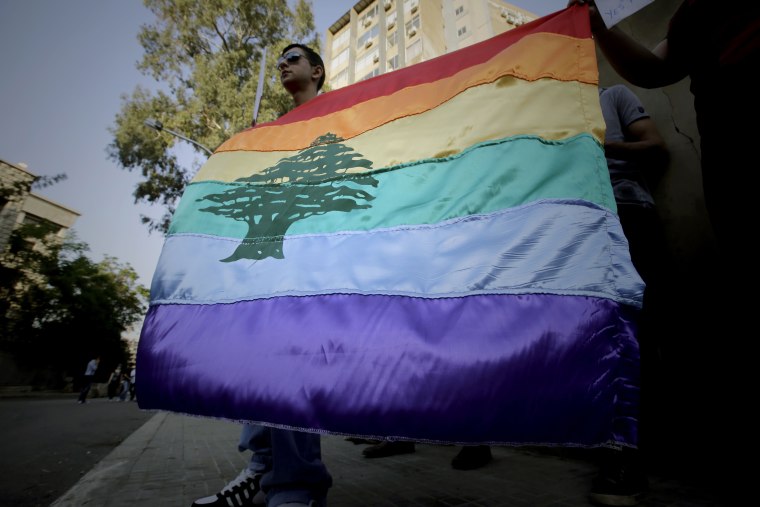LGBTQ-rights organization Helem is about to celebrate its 15-year anniversary, but thus far organizers have been unable to officially register the nonprofit with the Lebanese government.
Unlike similar organizations working in Lebanon, Helem’s official documents explicitly mention the lesbian, gay, bisexual, transgender and queer community, and this is why, according to incoming Executive Director Tarek Zeidan, his organization remains unrecognized.
Zeidan called the government’s refusal to officially recognize Helem a “purely homophobic and transphobic act.”
Lebanon’s penal code — specifically Article 534, which prohibits sexual relations “contradicting the laws of nature" — provides a pretext for public officials to deny Helem permission to register.
Officials, according to Zeidan, argue Article 534 must be overturned before Helem can be recognized. “Our response is that you need to register us, so we can get rid of it,” he said.
LEGAL RECOGNITION AROUND THE WORLD
Helem’s situation is not unique. A new report from LGBTQ human-rights organization Outright Action International found 55 countries around the world have LGBTQ organizations but do not allow them to legally register.
“In these countries disclosing an intention to serve LGBTIQ people sets up a barrier to legal registration,” the report states. “Thus, many organizations pursue registration using more neutral language about their aims and objectives that do not identify that they work with LGBTIQ people.”
OutRight adds an “I” to the LGBTQ acronym for the “intersex” community.
Of the 194 countries surveyed in OutRight’s analysis, 109 countries (56 percent) allowed LGBTQ organizations to legally register; 55 countries (28 percent) had LGBTQ organizations but did not allow them to legally register; and 30 countries (15 percent) had no known LGBTQ organizations.
“History shows that progress on LGBTIQ rights have come through activism and visibility,” Maria Sjodin, deputy executive director of OutRight Action International, told NBC News. “When states suppress LGBTIQ organizations, they are really trying to stop LGBTIQ people from gaining basic human rights and equality.”
OutRight’s analysis found that same-sex sexual activity between consenting adults was criminalized in 38 of the 55 countries where LGBTQ organizations cannot legally register and in 15 of the 30 countries where LGBTQ organizations could not be found.
WHY REGISTRATION MATTERS
The report found legal registration “facilitates operations and allows organizations to sustain their programs and increase their scope.” The inability to register and be officially recognized, however, makes them financially vulnerable and can undermine their work, according to the report.
“What has really hurt us is the fact that we cannot get a bank account,” Zeidan said. Helem’s organizers must work on a volunteer basis due to the organization’s inability to secure funding.
“Many funders refuse to work with NGOs without bank accounts,” Zeidan added.
Helem has used individuals’ bank accounts or operated financially through sister organizations, but these strategies pose transparency problems and are “interim solutions,” Zeidan explained.
There are more than just financial reasons to register. Based on nearly two dozen case studies of LGBTQ organizations like Helem, the report found “registration enhances organizations’ abilities to further the rights and well-being of LGBTIQ populations.”
This occurs through improving organizations’ public perception, increasing legitimacy in the eyes of the government and donors, and providing employment.
Zeidan said his organization is “committed to the fight” to become legally registered, “because it would be considered a landmark in the fight for legitimacy.”
RECOMMENDATIONS
The report acknowledges that legal registration is not the answer for every community-based organization, but when it is desired, “it should be available without discrimination on the basis of the sexual orientation, gender identity or expression and sex characteristics of the populations that the organization serves.”
“Any restrictions based on these factors amounts to discrimination in the fundamental human rights to expression, association, and assembly,” the report continues.
Sjodin emphasized the importance of removing the barriers to registration for LGBTQ groups where they currently exist, saying, “I truly believe that change in society happens because people organize and push for it. That is how greater equality for LGBT people has been achieved.”


